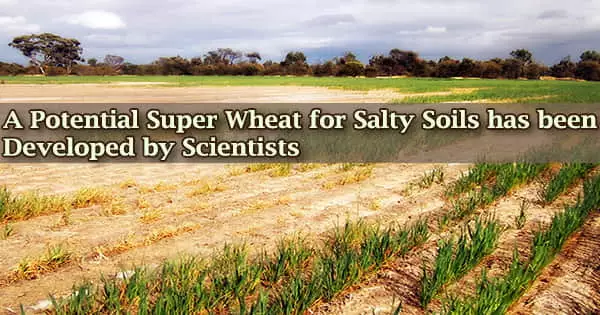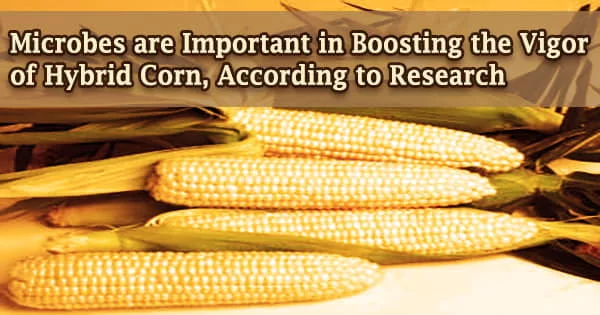A number of novel wheat cultivars have been created by scientists at the University of Gothenburg that can survive soils with greater salt concentrations. They have wheat with seeds that weigh three times as much and germinate almost twice as frequently as the original variety after genetically altering a wheat variety from Bangladesh.
When more and more agriculture throughout the world is being exposed to salt water, it is crucial that wheat, which grows in fields near the shore in Bangladesh, has a specific tolerance to salt in soils.
University of Gothenburg scientists have created almost 2,000 lines of wheat by modifying the wheat seeds from these coastal fields. The 35 lines were planted in an automated greenhouse in Australia, where various saline concentrations were sprayed to the plants, which were subsequently weighed. These 35 lines had the best germination rates in several fields and lab studies.
Till the wheat had developed its ear, they were captured on camera every day. The results were startling. Organic agriculture has many different definitions and interpretations, but they all point to a system that relies on ecosystem management rather than outside agricultural inputs.
An organic farming system is one that relies heavily on crop rotation, crop wastes, animal manures, etc. while avoiding or largely excluding the use of synthetic inputs. It is a comprehensive approach to production management that fosters and improves the health of the agro-ecosystem, taking into account biodiversity, biological cycles, and soil biological activity.
It emphasizes the use of management strategies over the use of off-farm inputs while taking into account the need for regionally tailored systems according to area variables. Non-certified organic agriculture or products are systems and byproducts of organic agriculture that are not usually certified.
It is incredibly important to try to develop a salt-tolerant variety with good yields. Currently, we are losing approximately 2,000 hectares a day to rising seas and improper irrigation methods that increase soil salinisation.
Johanna Lethin
Genes for salt tolerance identified
“We developed wheat lines where the average weight of the seeds was three times higher and that germinated more often than the original wheat from Bangladesh,” says Johanna Lethin, a doctoral student at the Department of Biological and Environmental Sciences at the University of Gothenburg.
The team was also successful in pinpointing the genes that regulate salt tolerance in the wheat plant through DNA analyses and reviews of prior research.
“This is a milestone in our research. Now we have a couple of genes we know are involved in salt tolerance. The next step is to test if these genes are also in our best wheat varieties that we have mutated into existence.”
By 2050, there will be 10 billion people on Earth, all of whom will require food due to the planet’s expanding population. At the same time as Earth’s arable land is drying up due to climate change, other areas are being inundated by rising sea levels. All of this raises interest in a crop that can withstand soil salts.
2,000 hectares are lost every day
“It is incredibly important to try to develop a salt-tolerant variety with good yields. Currently, we are losing approximately 2,000 hectares a day to rising seas and improper irrigation methods that increase soil salinisation.”
There are still other investigations to run, but this discovery has enormous promise. More than half of the world’s countries are now afflicted by salt contamination, which has rendered around 8% of the world’s arable land unusable for growing crops.
Wheat cannot be produced on wide tracts of land in Egypt, Kenya, or Argentina, and these issues also exist in low-lying parts of Europe like the Netherlands. Since salt-tolerant wheat takes significantly less water to grow than rice, it will become a significant component of the future food supply even in those regions of Asia where rice is currently the predominant crop.
“The next stage is to plant the salt-tolerant varieties in fields in Bangladesh. I would estimate that it will take about five years before we can have commercial production of salt-tolerant wheat, depending on how the field tests go.”
Facts: GMO and mutations
This study does not employ the sometimes harshly criticized technique of gene modification (GMO). In a GMO, a gene from one plant says, one that has fungal resistance is transferred to another plant, like wheat so that farmers won’t need to use as many insecticides.
Instead, a chemical has been used by the researchers to introduce specific mutations into the seeds. Nothing is introduced into the plant in this way, and any mutations might have happened spontaneously.
















